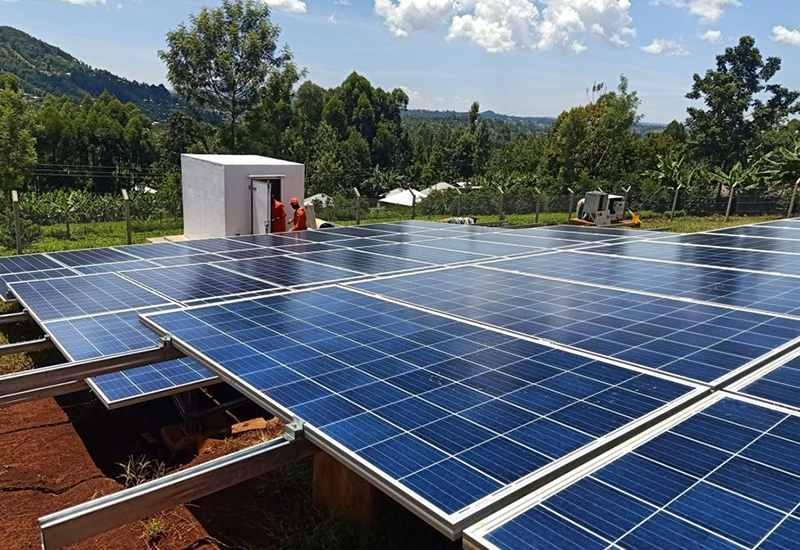On Monday, the European Union (EU) delegation to Nigeria and the Economic Community of West African States (ECOWAS) announced a significant development for the residents of the Etomi community in Cross River State; a solar mini-grid project has been funded and implemented to restore electricity to a community that has been without power for over six years. According to the official statement from the EU, this solar project now provides 119.5 kW of electricity to more than 600 households and businesses in Etomi, making a crucial impact on the daily lives and operations of the community members. The project was executed by the Deutsche Gesellschaft für Internationale Zusammenarbeit (GIZ), a German development agency that has significant experience in implementing sustainable energy projects in various communities.
Inga Stefanowicz, who serves as the Head of the Green and Digital Economy Section at the EU Delegation, underlined the importance of this solar mini-grid, which is structured as a public-private partnership (PPP). This approach aims to ensure sustainability and long-term maintenance by entrusting the operational management of the grid to a private company, while collaborating closely with the Cross River State Government. Stefanowicz emphasized that this initiative is part of the EU’s broader Global Gateway initiative, aimed at increasing access to clean, renewable, and affordable energy throughout Nigeria. By providing reliable electricity, the project is expected to promote social and economic development in the area, particularly benefitting local industries and agricultural practices given that Etomi is a cocoa-producing community.
The Cross River State Commissioner for Power and Renewable Energy, Eka Williams, expressed optimism regarding the solar mini-grid project, describing it as an off-grid system specifically designed to meet the needs of the Etomi community. She expressed gratitude towards the government support and the partnership with the EU that made the project possible, also announcing that similar initiatives are under consideration for four additional communities in the Etung Local Government Area. This replication effort indicates a commitment to not only addressing the energy deficit in Etomi but also extending the benefits of renewable energy to surrounding areas, which could enhance regional development as well.
Community members have welcomed the solar initiative enthusiastically, reflecting hope and gratitude for the return of electricity after years of power deprivation. John Okpa, a resident of Etomi, voiced the collective sentiment of joy, stating that the community is grateful to the EU for bringing light back into their lives. The installation of the solar mini-grid has transformed the living conditions for many, as evidenced by stories shared by business owners in the area who previously relied on costly and environmentally detrimental alternatives, such as generators.
Precious Jeremiah, a local businesswoman, articulated the tangible benefits of this new energy source. Having spent seven years operating her hair-styling business with the aid of a generator, she described the difficulties and costs associated with maintaining such a setup. The solar project has not only made her operations more efficient—eliminating the need for fuel and reducing maintenance costs—but has also enhanced the shopping experience for her customers, who can now enjoy a quieter and cleaner environment while receiving services. This improvement allows her to generate more profit and better provide for her family, including funding her children’s education.
Overall, the solar mini-grid project in the Etomi community exemplifies how renewable energy initiatives can dramatically improve lives in rural areas previously neglected by national grids. It underscores the potential benefits of international partnerships in restoring essential services and fostering sustainable development. As the EU and local authorities strive to replicate this success in other communities, the transformation witnessed in Etomi could serve as a model for addressing energy poverty in similar regions across Nigeria and West Africa.


